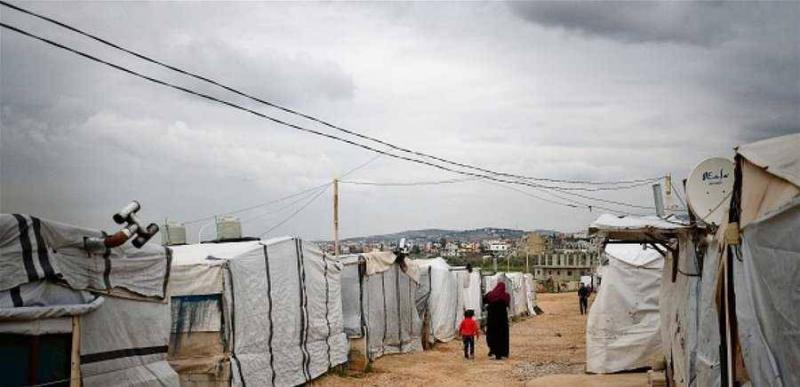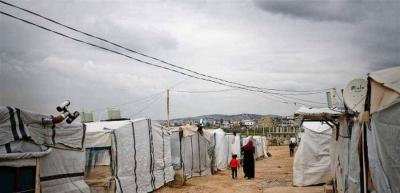After nearly 12 years since the onset of the Syrian displacement waves to Lebanon, and the spread of displaced individuals across hundreds of informal camps throughout the country that were receiving electricity without charge due to violations of the electrical network, the "Electricity of Lebanon" institution has started this week to draft consumption bills from the refugee camps and has sent teams to collect them. These bills are based on readings from approximately 900 electronic meters that were installed about a year ago at these camps across Lebanon, in coordination with the United Nations High Commissioner for Refugees, with plans for further installations in other camps.
Lebanese officials have frequently complained about the high costs the state incurs to provide electricity to Palestinian and Syrian camps, especially since electricity supply in all Lebanese regions has severely dropped in recent years due to the failure of Lebanon to implement a plan to revitalize the sector, which is struggling with crises including mismanagement, corruption, waste, network violations, and weak revenue collection.
However, the government has approved a new electricity sector plan that has begun implementation, which includes raising the tariff in exchange for ensuring additional daily electricity supply. This plan considers collecting electricity consumption bills from both Syrian and Palestinian refugee camps.
The General Manager of the Electricity of Lebanon, Kamal Hayek, indicated that the start of collecting electricity consumption values from Syrian refugee camps is "a major step that falls within the framework of the strategy we adopted with the World Bank for the sector's reform, under the banner (electricity is a basic commodity, and those who use it must pay for it, regardless of who they are) across all Lebanese territory." He noted that "the installation of meters in the camps was done in coordination with the UNHCR, which identified the camps and the chieftain responsible for each, as well as the property owner," adding in a statement to "Asharq Al-Awsat": "The Commission informed us that it will not pay the bills for the camps since the monthly amounts provided to refugees include electricity consumption, so refugees will need to pay the bills themselves."
Hayek pointed out that "security forces will assist the institution's employees in collecting the bills, and electricity will be cut off from those who fail to pay, whether they are Lebanese or Syrian, according to the principle of reciprocity." He explained that "since the implementation of the emergency electricity sector plan, the institution's finances have significantly improved, confirming our seriousness before the international community in pursuing the reform process."
Regarding the 12 Palestinian camps, Hayek considers, "this matter is more complicated as Lebanese security forces are unable to enter the camps; this is a file that requires a political decision, especially since UNRWA has also informed us that it will not pay the electricity bills for the camps." He noted that "the Palestinian camps burden the institution with an amount of 20 million dollars annually for just 4 hours of electricity daily." He added: "We proposed a comprehensive solution to the Council of Ministers about a month ago to ensure the collection of electricity consumption values from the Palestinian refugee camps, and we are awaiting a response."
For her part, the spokesperson for the UNHCR in Lebanon, Lisa Abu Khaled, stated that "contrary to popular belief, Syrian refugees pay rent, electricity, water, and waste collection costs like anyone else in Lebanon," noting in a statement to "Asharq Al-Awsat" that "in several informal camps across Lebanon, electricity meters have been installed. Refugees are systematically required to pay their bills to the chieftain or the property owner, depending on the individual case."
In a statement issued by the Electricity of Lebanon on Thursday, it said that the UNHCR informed it that it allocates a financial percentage for electricity consumption within the overall amounts of financial assistance it provides to Syrian refugees. According to the General Director of the General Security acting chief, Major General Elias Beseri, the estimated number of Syrian refugees in Lebanon is 2.1 million, representing 43 percent of the total residents in Lebanon.




